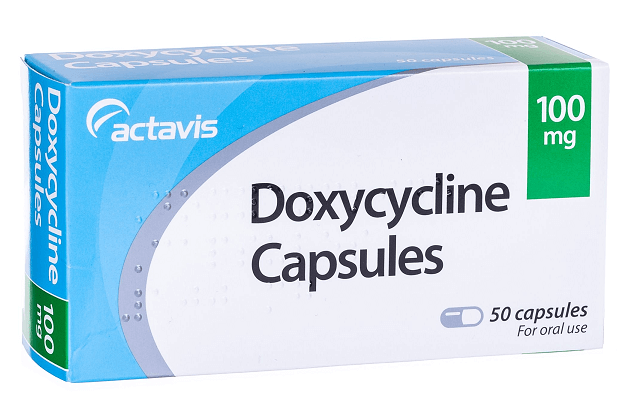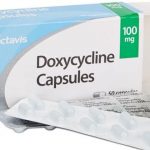How To Use Doxycycline

Doxycycline is an antibiotic drug that kills a wide, weird, and wonderful range of bugs that are often difficult to treat with other antibiotics. These include bacteria and parasites that take up residence inside our cells (called “intracellular organisms”), making them hard for most antibiotics to reach.
Doxycycline was invented and clinically developed in the early 1960s by Pfizer Inc., New York, and marketed under the brand name Vibramycin. Vibramycin received FDA approval in 1967, becoming Pfizer’s first once-a-day broad-spectrum antibiotic. Doxycycline is in a class of medications called tetracycline antibiotics. It works to treat infections by preventing the growth and spread of bacteria. It works to treat acne by killing the bacteria that infects pores and decreasing a certain natural oily substance that causes acne. It works to treat rosacea by decreasing the inflammation that causes this condition.
What is doxycycline used for?
Doxycycline is used to treat infections caused by bacteria, including pneumonia and other respiratory tract infections; certain infections of the skin or eye; infections of the lymphatic, intestinal, genital, and urinary systems; and certain other infections that are spread by ticks, lice, mites, infected animals, or contaminated food and water. It is also used along with other medications to treat acne.
Doxycycline is also used to treat or prevent anthrax (a serious infection that may be spread on purpose as part of a bioterror attack), in people who may have been exposed to anthrax in the air, and to treat plague and tuleramia (serious infections that may be spread on purpose as part of a bioterror attack). It is also used to prevent malaria. Doxycycline can also be used in people who cannot be treated with penicillin to treat certain types of food poisoning. Doxycycline (Oracea) is used only to treat pimples and bumps caused by rosacea (a skin disease that causes redness, flushing, and pimples on the face).
What side effects can this medication cause?
Doxycycline may cause side effects. Tell your doctor if any of these symptoms are severe or do not go away:
- nausea
- vomiting
- diarrhea
- loss of appetite
- itching of the rectum or vagina
- sore or irritated throat
- swollen tongue
- dry mouth
- anxiety
- back pain
- changes in color of skin, scars, nails, eyes, or mouth
Some side effects can be serious. If you experience any of these symptoms, call your doctor immediately:
- headache
- blurred vision, seeing double, or loss of vision
- rash that may occur with fever or swollen glands
- hives
- skin redness, peeling or blistering
- difficulty breathing or swallowing
- swelling of the eyes, face, throat, tongue, or lips
- unusual bleeding or bruising
- watery or bloody stools, stomach cramps, or fever during treatment or for up to two or more months after stopping treatment
- a return of fever, sore throat, chills, or other signs of infection
- joint pain
- chest pain
- discoloration of permanent (adult) teeth
Doxycycline may cause other side effects. Call your doctor if you have any unusual problems while taking this medication.
How To Use Doxycycline
Doxycycline is available in different forms, including tablets, capsules, and suspensions. Here is detailed information on how to take doxycycline:
1. Follow the Prescribing Doctor’s Instructions
The first step in taking doxycycline is to follow the prescribing doctor’s instructions. The dosage and duration of treatment will depend on the type and severity of the infection, as well as other factors such as age and overall health. Always take the medication as directed by your doctor, and do not exceed the recommended dose.
The following are general guidelines for doxycycline dosing:
- For treating infections: The usual adult dose of doxycycline is 100mg twice a day on the first day of treatment, followed by a maintenance dose of 100mg once a day. The length of treatment can vary depending on the type and severity of the infection.
- For preventing malaria: The recommended dose of doxycycline for adults is 100mg once a day, starting one or two days before traveling to a malaria-endemic area and continuing for four weeks after leaving the area.
- For acne: The usual dose of doxycycline for acne is 50-100mg once a day for several months. The exact length of treatment can vary depending on the severity of the acne.
It is important to follow the dosing instructions provided by your healthcare provider or as indicated on the medication label. Do not change your dose or stop taking doxycycline without first consulting with your healthcare provider.
2. Take with a Full Glass of Water
When taking doxycycline, it is important to drink a full glass of water with each dose. This will help the medication to dissolve and be absorbed into the bloodstream more quickly. You should also take the medication with food or milk, as this can help to reduce stomach upset.
3. Avoid Taking with Dairy Products
Doxycycline should not be taken with dairy products such as milk, cheese, or yogurt. These products can interfere with the absorption of the medication, making it less effective. If you need to take doxycycline with food, choose foods that are low in calcium, such as crackers or toast.
4. Do Not Crush or Chew
Doxycycline tablets and capsules should be swallowed whole with water. Do not crush, chew, or break the medication, as this can cause the medication to be released too quickly, leading to side effects such as nausea or vomiting.
5. Complete the Full Course of Treatment
It is important to complete the full course of treatment, even if you start feeling better before the medication is finished. This will help to ensure that all of the bacteria are killed, and the infection does not return. If you stop taking doxycycline too early, the infection may come back, and it may be more difficult to treat.
6. Avoid Exposure to Sunlight
Doxycycline can make your skin more sensitive to sunlight, increasing the risk of sunburn or skin rash. To reduce the risk of these side effects, avoid prolonged exposure to sunlight or tanning beds, and wear protective clothing and sunscreen when outside.
7. Store Properly
Doxycycline should be stored at room temperature, away from heat, moisture, and direct light. Keep the medication out of reach of children and pets, and do not use expired medication.
8. Watch for Side Effects
Like all medications, doxycycline can cause side effects. Common side effects include nausea, vomiting, diarrhea, and stomach upset. If you experience any of these symptoms, contact your doctor or pharmacist for advice.
Less common side effects of doxycycline include skin rash, itching, or hives, difficulty breathing or swallowing, severe headache or dizziness, and yellowing of the skin or eyes. If you experience any of these symptoms, seek medical attention immediately.
9. Check for Drug Interactions
Doxycycline can interact with other medications, including antacids, blood thinners, and birth control pills. Before taking doxycycline, tell your doctor about all of the medications you are taking, including over-the-counter medications, vitamins, and supplements.
Alcohol should be avoided while taking doxycycline, as it can increase the risk of certain side effects such as stomach upset, dizziness, and headache.





